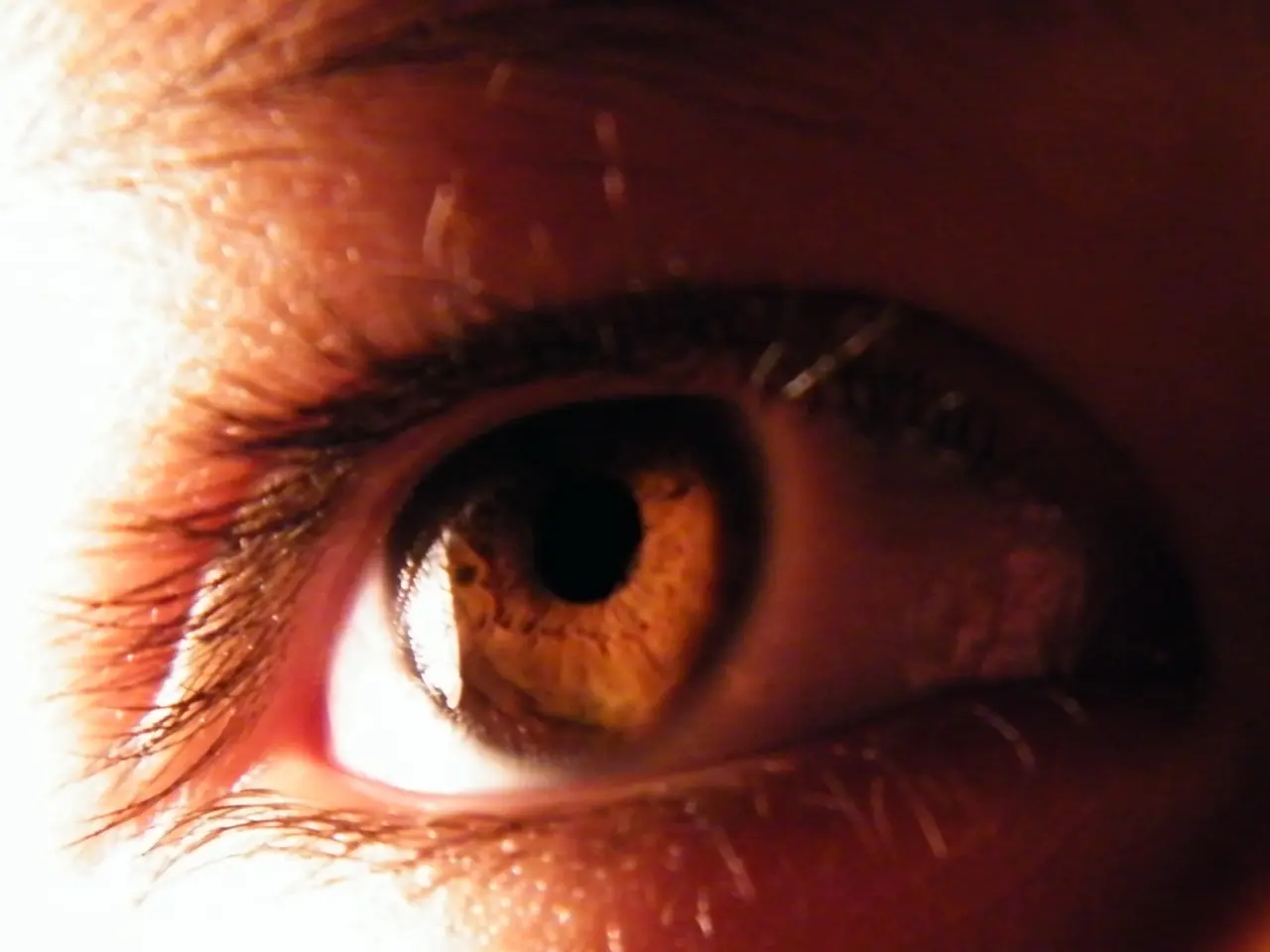Facial Eczema Care Regimen: Detailed, Sequential Instructions
=====================================================================
Facial eczema, also known as atopic dermatitis, can be a persistent challenge for those affected. This chronic inflammatory skin condition often leads to dry, itchy, and inflamed skin on the face. However, with the right skincare routine and products, it is possible to manage symptoms effectively.
A tailored skincare routine is essential in managing facial eczema. Look for products labeled "dye-free," and "hypoallergenic," and steer clear of ingredients like alcohol, sulfates, parabens, and formaldehyde. Choosing jewelry made from hypoallergenic materials like stainless steel, gold, or silver can also help avoid triggers, as nickel is a common allergen.
When it comes to clothing, opt for soft, breathable fabrics like cotton and avoid rough materials such as wool or synthetic fabrics. Regularly consult with a dermatologist to help identify and manage triggers, seek personalized advice, and receive recommendations for treatments or lifestyle adjustments based on your specific condition.
Basic skincare principles for eczema include using gentle products, avoiding common irritants, moisturizing regularly, understanding your skin type, bathing with care, staying hydrated, and using a humidifier during dry, cold months. Be aware of common food allergens like dairy, eggs, nuts, soy, and gluten, and consider an elimination diet under the guidance of a healthcare professional if certain foods are suspected triggers.
During a flare-up, it is important to simplify your routine, moisturize intensively, avoid potential irritants, treat inflamed areas, wear protective clothing, and seek medical advice if necessary. Flare-ups may lead to visible rashes, especially around the eyes, cheeks, and mouth, and when they affect the face, they can cause redness, swelling, and irritation.
Effective skincare products and routines for managing facial eczema focus on gentle, fragrance-free, and hydrating formulations that support the skin barrier and reduce irritation. Key elements include moisturizers with ceramides, colloidal oatmeal, and shea butter, which soothe inflammation, provide deep hydration, and help repair the skin barrier.
Brands like CeraVe, Eucerin, Vanicream, Aveeno, and ERLY are highly recommended by dermatologists for eczema due to their clinically backed, hypoallergenic, and fragrance-free formulations. Use a gentle, fragrance-free, non-foaming cleanser to avoid stripping the skin’s natural oils and worsening irritation. Apply a thick, creamy moisturizer immediately after bathing to lock in moisture. Reapply throughout the day, especially on dry or affected areas.
Incorporate a mineral-based sunscreen (containing zinc oxide or titanium dioxide) in the morning routine to protect sensitive skin from UV damage without irritation. For flare-ups, short-term use of over-the-counter hydrocortisone cream can reduce itching and inflammation but should be used sparingly and under medical advice.
A simple eczema-friendly facial skincare routine might be:
Morning:
- Gentle fragrance-free cleanser
- Moisturizing cream with ceramides and colloidal oatmeal
- Mineral-based sunscreen (zinc oxide or titanium dioxide)
Evening:
- Lukewarm water rinse or short shower with gentle cleanser
- Thick moisturizer or ointment
- Optional: short-term hydrocortisone cream for flare-up relief
Overall, consistently using gentle, barrier-repairing moisturizers and avoiding common irritants while protecting skin with sunscreen forms the cornerstone of managing facial eczema. Patch-testing new products and consulting a dermatologist for personalized care are recommended due to the variability in individual responses.
[1] https://www.ncbi.nlm.nih.gov/pmc/articles/PMC6445030/ [2] https://www.aad.org/public/diseases/eczema/eczema-treatment [3] https://www.ncbi.nlm.nih.gov/pmc/articles/PMC4462168/ [4] https://www.ncbi.nlm.nih.gov/pmc/articles/PMC3136573/ [5] https://www.ncbi.nlm.nih.gov/pmc/articles/PMC5694260/
- To support the skin barrier and reduce irritation, opt for skincare products with hyaluronic acid, ceramides, and colloidal oatmeal.
- For a vegan skincare routine, consider brands like CeraVe, Eucerin, Vanicream, Aveeno, and ERLY, which offer clinically backed, hypoallergenic, and fragrance-free formulations.
- During a flare-up, it's crucial to use a simple skincare routine, perhaps including an eye cream designed for sensitive skin to address the delicate area around the eyes.
- When choosing skincare products, it's essential to consider your medical-conditions and chronic-diseases, particularly if you have eczema or sensitive skin.
- Incorporate a toner into your skincare routine, preferably one that is alcohol-free and gentle to avoid further irritation.
- Skincare science suggests using a serum containing key ingredients like hyaluronic acid, niacinamide, and antioxidants to enhance skin hydration and protect against environmental stressors.
- Keep your skincare routine consistent and tailored to your specific needs, taking into account your health-and-wellness goals and any skin-care advice from a dermatologist.
- Moisturizers, both daytime and nighttime, play a significant role in managing facial eczema by providing deep hydration and reducing inflammation, aiding in the repair of the skin barrier.




